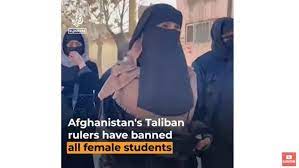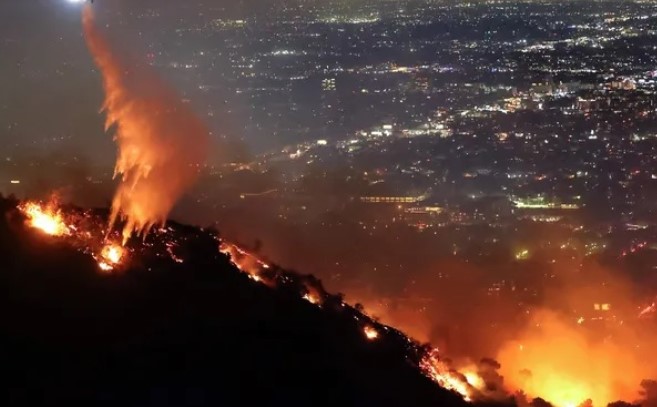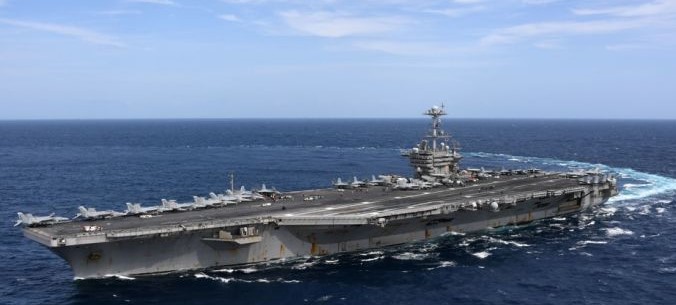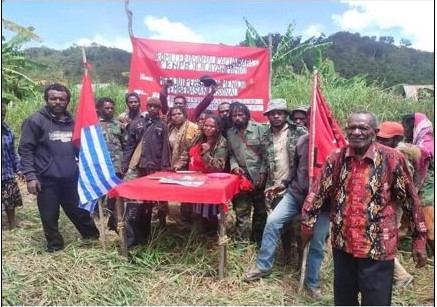
STRATEGIC ASSESSMENT. President Jokowi said that he supports plans to scale back the presence of troops in the eastern region of Papua, where the country’s military has been accused of human rights abuses in tackling a long-running independence movement.
President Jokowi welcomed the new TNI Commander Admiral Yudo Margono’s plan to prioritize a humane approach in Papua. Despite the commitment to accord priority to a humane approach, Jokowi on Monday reminded Margono to remain firm against armed criminal groups disrupting security in the region.
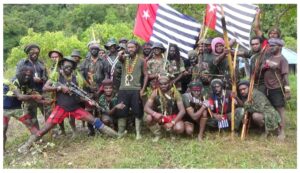
Margono said that the TNI would remain firm against violations threatening national sovereignty in Papua. He added that the military would emphasize territorial operations in Papua instead of engaging in military operations. Margono said he, along with the TNI chiefs of staff, would visit Papua soon in order to evaluate conditions in Papua.
Yudo said restoring order and security in Papua is one of his top priorities, and that he will visit the restive region “at the first opportunity” to get firsthand knowledge of the situation before making any strategic decisions. Yudo ruled out the so-called military operation in Papua, emphasizing that he will continue with the current “territorial operation” instead. Yudo said conflict in the region has yet to reach a state of emergency despite Papua independence movements.
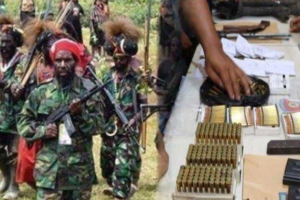
Meanwhile, Political, Legal, and Security Affairs Coordinating Minister Mahfud M.D. said there had been a series of incidents of violence in Papua following the “Humanitarian Pause” dialogue in Geneva, Switzerland on Nov. 11. He said the dialogue initiated by National Human Rights Commission (Komnas HAM) with the participation of the Papuan People’s Council did not guarantee a ceasefire in the region.
He denied that the government was hesitant and afraid to engage in dialogue with the Free Papua Movement (OPM). Previous dialogue efforts, according to Mahfud, did not reflect the wishes of all parties. He said that the OPM and its supporters refused to engage in dialogue facilitated by other parties because the OPM has always sought mediation from the U.N. Human Rights Council, despite their lack of legitimacy at the United Nations.

Demonstrators from the Alliance to Defend the Unitary Republic of Indonesia and Papuan students clashed during a demonstration in front of the U.N. representative office in Central Jakarta on Monday due to their different demands.
Central Jakarta Police Chief Komarudin said the former demanded the United Nations not to interfere in Indonesia’s internal affairs, while the latter rejected special autonomy, coinciding with the 61st anniversary of the Operation Trikora that aimed to seize and annex the Dutch overseas territory of Netherlands New Guinea back in 1961. According to Komarudin, the two groups of protesters were not authorized by the police. He assured that no one was hurt in the clash.
According to Sebastian Strangio, Southeast Asia editor at The Diplomat, Indonesia’s newly appointed military chief has played down the seriousness of the situation in Papua, after several years of worsening conflict in the restive eastern region. According to a report by BenarNews, Adm. Yudo Margono, who was sworn into his position on Monday, was responding to a question from a reporter about whether the increase in violent attacks over the past few years had reached the level of an emergency.
“Not yet. I don’t think it has reached that level,” he said. “So far it remains a criminal law enforcement issue, so Indonesian police are in charge, but we are helping law enforcement.”
The questioner referenced an incident on Monday in which police fired on villagers who had attacked a police station in Tolikara regency, in the newly formed Papua Highlands province, with “sharp weapons and arrows,” as CNN Indonesia reported. In the incident, one resident was reportedly shot dead and another eight were injured. The incident reflected the growing level of violence in the two provinces of Indonesian Papua, which is home to a long-running separatist insurgency.
Social, culture and humanitarian portrait in Papua
Institute for Development of Economics and Finance (INDEF) Director Berly Martawardaya said Papua and West Papua are two of three provinces in Indonesia with the lowest development of all according to the research report “Special Autonomy and the Curse of Papua’s Natural Resources” published by Greenpeace Indonesia and INDEF. He said that indigenous Papuans have limited access to three major public services: health, education, and economic income. According to him, the poverty rate in Papua was 26,5 percent, while in West Papua it was 21,6 percent.
Papua Human Resources Development Agency (BPSDM) Chair Aryoko Rumaropen said that there were at least 528 Papua students receiving scholarships who had dropped out from their studies. Reported from Jubi, a partner of Teras.id, Rumaropen explained that out of 528 students who declare a dropout, 271 are students studying abroad.
The 257 students were said to have dropped out of Indonesian universities. Dropping out of the study, he claims, was due to a variety of issues, including poor academic performance, exceeding the study period, violating college regulations, and, in some cases, breaking the law. “Some were expelled due to ethical violations on campus and legal issues,” Rumaropen said to Jubi on Dec. 12 in Jayapura.
According to, Kornelius Purba, The Jakarta Post’s Senior Editor, my mind has flashbacks of former foreign affairs minister Ali Alatas telling me about the real power of the Foreign Ministry many years ago when I read the speech of Foreign Affairs Minister Retno Marsudi during the first Indonesia-Pacific Forum for Development (IPFD) in Bali early this month. Ali’s experience in dealing with East Timor at the time can be a good reminder for Retno in negotiating the Papuan issue.
To be honest, one of the main motives behind the Pacific approach is to “appease” the people in the region who have strong emotional and cultural bonds with the people in Papua. In dealing with Papua, President Jokowi seems to emulate the “divide and rule” tactic of the Dutch to maintain its colonialism in the East Indies for more than three centuries.
Just recently, his administration formed three new provinces in Papua, in addition to the existing provinces of Papua and West Papua. The government believes it will be much easier to quell separatist aspirations in Papua if the people are not united. However, the Foreign Affairs Ministry is not the sole government institution conducting diplomacy.
Other ministries and state institutions are also involved in foreign affairs, but oftentimes there is no coordination among the agencies. The roots of the Papua issue come from our own home, not overseas. The Pacific Islands nations are sensitive to the suffering of their Melanesian brethren in Papua, but cannot provide any solutions to us.

The editor has underlined that on Papua’s case, Indonesia has faced “VUCA” conditions. VUCA is abbreviation from vulnerability, uncertainty, complexity and ambigiousity. “Vulnerability and uncertainty can occur in Papua if Papua Freedom Movement Army (TPN-OPM PB) does not want to surrender, because if they are not surrender both of TNI and Polri against OPM can occur in Papua’s region and its make all of development progress in Papua will meaningless. Complexcity is refers to Papua’s grassroots conflicts are very complex. Papua’s conflict has drawn from many of problems from security problems, natural resources problems, social and cultural problems, law enformance process sometimes has been face stagnant, until humanitarian crisis problems, and all of those can make Papua’s conflict saga will go to ambigious condition.
The main underlined to solve Papua’s problems is starting from Lukas Enembe’s corruption law enforcement must be strictly done. If law enforcement apparatus in Papua has been evaluated that they are hesitate to finishing Enembe’s graft case, so The National Police Headquarters with The Corruption Eradicating Commission (KPK) must be taken Enembe’s case.


